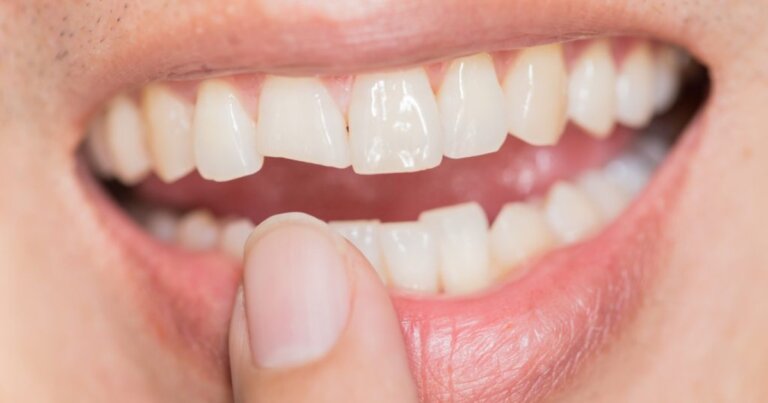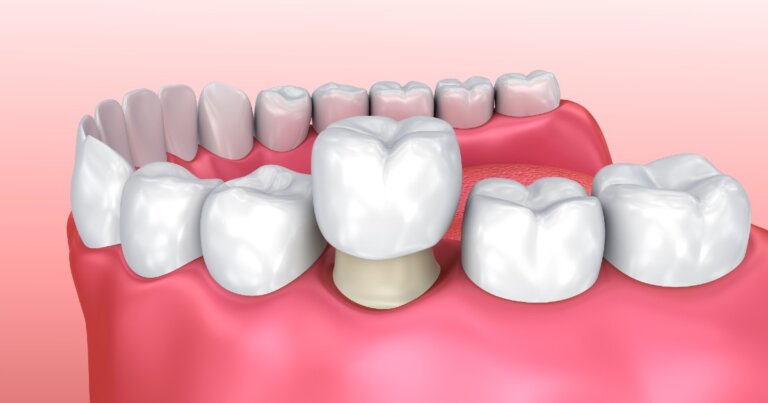Broken Tooth

What Is A Broken Tooth?
A Broken Tooth occurs when a tooth is chipped, cracked, or fractured. This can result from various causes, including traumatic accidents, biting down on hard objects, or tooth decay. The damage can range from minor chips in the enamel to severe fractures that expose the inner nerves of the tooth. Regardless of the severity, a broken tooth can lead to discomfort, sensitivity, and pain. Seeking immediate dental care is crucial to prevent further complications, such as infection or increased tooth damage.
Before you contact a Toronto dentist to examine a Broken Tooth, there are some things you should know as a patient:
- Common Causes of a Broken Tooth
- Signs And Symptoms Of A Broken Tooth
- Treatment Options For A Broken Tooth
- Managing A Broken Tooth Until You Can See The Dentist
- Frequently Asked Questions About Broken Teeth
If you have questions about A Broken Tooth or other dental problems, please contact us for more information.
Common Causes of a Broken Tooth
Understanding why a tooth breaks can help in preventing future issues. Some common causes include:
- Dental Trauma: Injuries from sports, falls, or accidents can result in cracks or chips.
- Tooth Decay: Decayed teeth are weaker and more prone to fractures.
- Biting Hard Objects: Chewing on hard items like ice, pens, or hard candy can break teeth.
- Teeth Grinding (Bruxism): Chronic grinding or clenching places excessive stress on teeth, leading to cracks or chips. A custom dental night guard may be recommended.
- Age-Related Wear: Teeth naturally wear down over time, making them more susceptible to damage.
- Large Dental Fillings: Teeth with large fillings may weaken over time, increasing the risk of cracks. A preventive dental crown can offer added protection.
- Root Canal Treatments: After a root canal, teeth are more brittle and susceptible to fractures. A dental crown is often recommended to protect the tooth from future damage.
Understanding the potential causes of a broken tooth can help you take steps to prevent future damage and preserve your dental health. If you have further questions about A Broken Tooth, please contact us.
Signs And Symptoms Of A Broken Tooth
If you’ve cracked or chipped a tooth, the symptoms may vary depending on the extent of the damage. Common signs include:
- Pain when Biting or Chewing: Sharp or throbbing pain when applying pressure on the tooth.
- Sensitivity to Temperature: Sensitivity to hot or cold foods and beverages, especially when the inner layers of the tooth are exposed.
- Sensitivity to Sweets: Sweet foods and drinks can trigger discomfort in broken teeth.
- Visible Crack or Chip: Depending on the severity, the crack may be visible, or only detectable through dental X-rays.
- Swollen or Red Gums: Gum irritation may occur around the broken tooth.
If you’re experiencing these symptoms, it’s important to seek dental care to prevent further damage. If you have further questions about signs and symptoms of a Broken Tooth, please contact us.
Treatment Options For A Broken Tooth
The appropriate treatment for a broken tooth depends on the location and severity of the break. Here are some common options:
- Dental Bonding: For minor chips, composite resin can restore the tooth’s appearance and function.
- Dental Crowns: For larger fractures, a dental crown is often necessary to protect the tooth and restore its functionality. Crowns are typically made from porcelain, ceramic, or metal.
- Dental Veneers: A thin layer of porcelain can cover and restore chipped front teeth.
- Root Canal Treatment: If the crack reaches the pulp, a root canal may be necessary to remove damaged nerve tissue and prevent infection. A crown is typically placed afterward to protect the tooth.
- Tooth Extraction: In severe cases, the tooth may need to be removed. Replacements such as dental implants or bridges can restore the missing tooth.
Your dentist can help you determine the best course of treatment based on the extent and severity of the tooth damage. If you have further questions about how to treat a Broken Tooth, please contact us.

Managing A Broken Tooth Until You Can See The Dentist
If you suspect you have broken a tooth and can’t see your dentist immediately, follow these tips to manage pain and prevent further damage:
- Take Pain Relievers: Over-the-counter medications like ibuprofen or acetaminophen can help with discomfort.
- Rinse with Salt Water: This helps reduce inflammation and minimizes the risk of infection.
- Avoid Hot and Cold Foods: These can trigger sensitivity in the damaged tooth.
- Stay Away from Hard Foods: Stick to soft, non-sticky foods to avoid further damage.
- Use a Cold Compress: Applying a cold pack to the outside of your cheek can help reduce swelling.
It’s essential to visit your dentist as soon as possible to prevent further complications or infection. If you have further questions about how to manage a Broken Tooth, please contact us.
Frequently Asked Questions About Broken Teeth
- What should I do immediately after breaking a tooth?
Rinse your mouth with warm water, save any broken pieces, and apply a cold compress to reduce swelling. Then, contact your dentist for an emergency appointment.
- Can a broken tooth heal on its own?
No, a broken tooth cannot heal naturally. Professional treatment is necessary to restore the tooth and prevent further damage or infection.
- Is a broken tooth always painful?
Not always, but it can become painful if the nerve is exposed or the tooth becomes infected. Even without pain, it’s important to seek dental care promptly.
- How much does it cost to fix a broken tooth?
The cost depends on the severity of the break and the treatment required, such as bonding, crowns, or veneers. Your dentist can provide a detailed estimate after assessing your tooth.
A broken tooth should never be ignored, as timely treatment can prevent further complications and restore your smile. If you have further questions about how to prevent a Broken Tooth, please contact us.

